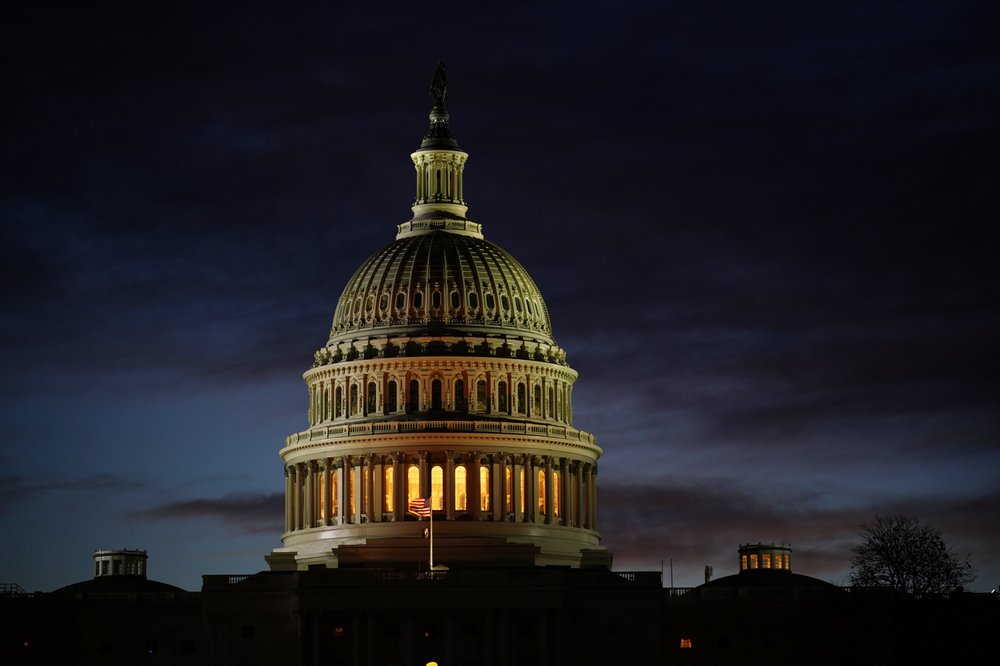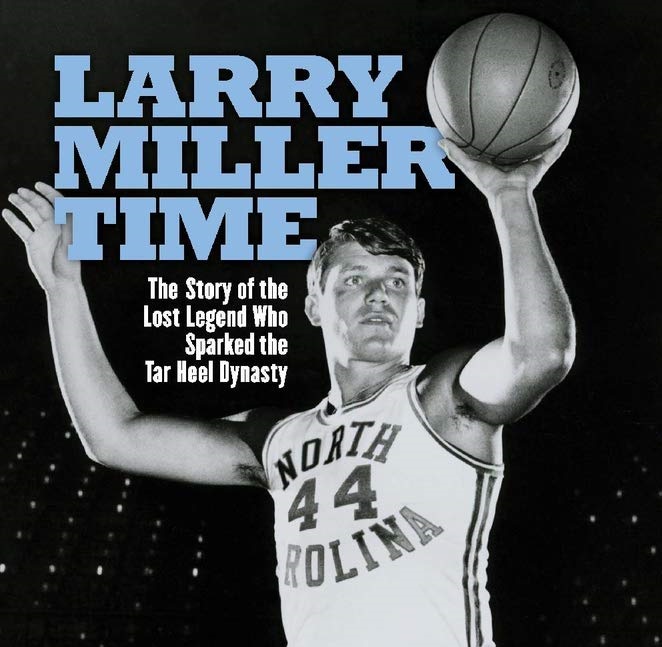North Carolina Democrats don’t need a Jeremy Corbyn What can North Carolina Democrats learn from British politics? There are comparisons to be made between their party and the British Labour Party. Labour and North Carolina Democrats had similar experiences in 2010 when elections wiped out the legislative majorities each had enjoyed.
In North Carolina, that election ended more than a century of Democratic control of the General Assembly, except for four years in the 1990s when Republicans controlled the House of Representatives.
In Britain, Labour had been in power from 1997, when Tony Blair led the party to a landside election victory over the Conservatives, also known as Tories. The Tories had ruled since 1979, when Margaret Thatcher led her party to victory over fractious Labour.
Out of power during the Thatcher years, Labour supporters argued about proposals to adopt a platform to appeal to growing numbers of middle class and mainstream voters. These changes would break away from Labour’s traditional focus on the needs and aspirations of its working class base.
Led by Tony Blair, Labour rebranded itself as New Labour, discarded its historic commitment to nationalizing industry, and adopted a more modest statement of its equalization goals for Britain “in which power, wealth and opportunity are in the hands of the many, not the few, where the rights we enjoy reflect the duties we owe, and where we live together, freely, in a spirit of solidarity, tolerance and respect.”
Although Labour lost some enthusiasm from its traditional base, its modern platform helped broaden support from other voters. The 1997 election that made Blair the prime minister was Labour’s largest landside victory ever. After Blair’s victory, his Labour government adopted moderately progressive social reforms such as a national minimum wage, changes in banking regulations, and tax and benefit reforms.
Blair’s New Labour governed until 2010 when the Tories led by David Cameron defeated Blair’s successor, Gordon Brown.
The far-left or old guard members of the Labour’s base had never been happy with the success of Blair’s moderate programs. Their lack of enthusiasm for their party contributed to Labour’s loss.
Since 2010, Labour’s old guard has taken control of the party again and has driven moderates and New Labour supporters away from party leadership.
Labour’s current leader, Jeremy Corbyn, is an unapologetic, old guard Labourite who opposed Blair’s party and governmental leadership. He favors renationalizing public utilities and some banks, raising taxes, setting maximum compensation for the wealthy, and withdrawing from NATO.
Corbyn’s old guard views have helped mobilize Labour’s base. The party is growing in membership. But his and the party’s support, though deep, is not wide. Apparently, many New Labour supporters have bolted and, except for its core base, public support for Labour has disappeared.
In the upcoming June 8 British parliamentary election, the Tories are licking their chops. According to Reuters’s Elizabeth Piper, they hope to “destroy” Labour. The Guardian’s John Harris writes, “This is, then, arguably the most momentous period the country has entered since 1945–which brings us to the Labour party, and its quite astounding irrelevance. The basics of its position barely need recounting. Labour has no hope of forming the next government nor in all likelihood the one after that. Questions about its possible extinction abound. And its staggering poll deficits leave the Tories to do pretty much as they please.”
By choosing ideological purity over the broad-based progressivism that Blair used to win elections and govern, Labour may have conceded that upcoming election and its future in British politics.
What then is the lesson for North Carolina Democrats?
Don’t do what British Labour has done.
Don’t let a Jeremy Corbyn-like ideologue take over your party.
D.G. Martin hosts “North Carolina Bookwatch,” which airs Sundays at noon and Thursdays at 5 p.m. on UNC-TV. This Thursday’s (May 25) guest is John Claude Bemis, author of “Out of Abaton: The Wooden Prince.” (Next week’s (May 28, June 1 guest isJohn Semonche, author of “Pick Nick: The Political Odyssey of Nick Galifianakis from Immigrant Son to Congressman.”
Thursday 5pm May 25 John Claude Bemis author of “Out of Abaton: The Wooden Prince”
Sunday noon May 28 and Thursday 5pm June 1 John Semonche, author of “Pick Nick: The Political Odyssey of Nick Galifianakis from Immigrant Son to Congressman”
Thursday 5pm June 8 Lee Smith, author of “Dime Store”
Thursday 5pm June 15 John Hart, author of “Redemption Road”
Sunday noon June 18 and Thursday 5pm June 22 Kristy Woodson Harvey author of “Lies and Other Acts of Love”
Sunday noon June 25 and Thursday 5pm June 29 Robert Morgan, author of “Chasing the North Star”
Sunday noon July 2 Vivian Howard, and Thursday 5pm July 6 Vivian Howard, author of “Deep Run Roots”
Related Stories
‹

One on One: John Rosenthal Asks, Why?Why? Why? Why? This question haunts anyone who has lost a family member or friend to suicide. We deal with the question of what could we have done and wonder why it had to happen? North Carolina’s famed photographer John Rosenthal faced these questions in 1965 when his friend, a former girlfriend, Amylu Danzer, took […]

One on One: Deciding Who Leads A UniversityWho runs the university? What university are you asking about? Well, for example, Fayetteville State University, one of the 17 institutions that are part of the University of North Carolina, now known as the UNC System. Clearly, the recently appointed chancellor of FSU, Darrell Allison is the leader of that institution. But others share his […]
![]()
One on One: When Do We Change Names and History?Last week the Raleigh City Council removed the historic designation of Wakestone, the former home of Josephus Daniels. That action is just one more reminder of North Carolina’s and the nation’s struggle to find agreement on what people should be honored and what versions of history should be taught in our schools. The unanimous action […]

One on One: John Hart’s Grim ReturnJohn Hart can flat-out write,” says bestselling author David Baldacci. Hart proves it again with his latest, “The Unwilling,” 150,000 copies of which have been printed to be ready for release this week. It’s been almost 15 years since former North Carolina lawyer John Hart hit the big […]
![]()
One on One: Three New North Carolina-Connected CongresswomenThree North Carolina-connected women Democrats broke the mold in the recent congressional elections. The “mold” was Democrats losing congressional seats to Republicans. These three women won seats that were previously held by Republican men. All three are the sorts of smart, experienced, hard-working people who have the potential to be leaders in Congress. All three […]

One on One: Another InoculationWe got inoculated last week. Or, I think we did. I hope we did. I am not thinking about the COVID vaccine that some got recently and others, I hope, will be getting soon. Nor am I thinking about flu shots or measles. I bet you remember the smallpox vaccine that many of us got […]

One on One: The College Sports We Want To SaveIs the U.S. Supreme Court going to put college athletics out of business? Last week it agreed to decide whether the NCAA’s limits on compensating college athletes violate antitrust laws. Or is it the NCAA that is changing important sports traditions by loosening to the point of elimination its rules limiting transfers of college athletes […]
![]()
One on One: Jim Crow Is Still Alive in North CarolinaUnbelievable when you think about it, how North Carolina maintained its segregated and discriminatory racial system for such a long time. The remnants of what is commonly called “Jim Crow” are still with us, a daily reminder of the horrors of the past. A new book, “Jim Crow in North Carolina: The Legislative Program from […]

One on One: Books for Holiday GivingIf you are worried about holiday gifts or selections for your book club’s reading, here are some good North Carolina-connected books to consider. Three beloved North Carolina authors have new books that would be perfect for fiction fans: Allan Gurganus, author of “The Oldest Confederate Widow Tells All,” gives us a crop of his best […]

One on One: Greek and Hebrew Guides to Our Political DifferencesHow can ancient Greek and Hebrew thinking help us understand why our friends who support other political candidates see things so differently from us? Why are we locked into such different positions? It is dangerous for anyone to try to explain why people support opposing political figures or different political parties or programs. We sometimes […]
›








